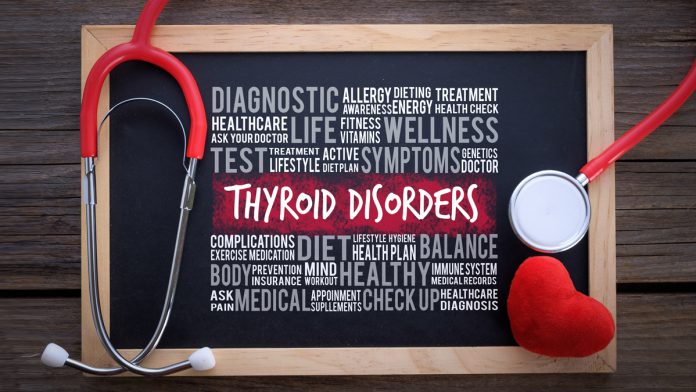Feeling lethargic, too hot or cold, unusual weight gain or loss, hair fall?? Do you need to check your thyroid?
Tests to check your Thyroid health.
The thyroid is a small gland in your neck with a shape of a butterfly that affects most organs of your body including your brain and heart. It secretes certain hormones that enhance the functioning of your body. The thyroid gland takes up iodine from the blood to make the hormones T4 (Thyroxine) and T3 (3,5,3’-Triidothyronin). When the brain orders the thyroid, it releases these hormones. However, in certain conditions, the levels of these hormones rise or lower to give hyperthyroidism or hypothyroidism respectively.
Symptoms of Thyroid Disorders
| HYPOTHYROIDISM | HYPERTHYROIDISM |
|---|---|
| Lethargy and fatigue (tiredness) | High blood pressure |
| Slowness in speech and thinking | Irregular heartbeat |
| Dry skin | Hair loss |
| Constipation | Weakness and sleep problems |
| Unexplained weight gain | Unexplained weight loss |
| Feeling too cold | Feeling too hot |
| Decreased hunger | Increased hunger |
Testing is now easy
- T3, T4, and Thyroid Stimulating Hormone (TSH) test:
The TSH hormone signals the release of T3 and T4 hence high or low levels of these can be seen in thyroid disorders like goiter Now in goiter you can see patients with a bulge in their neck, because of enlargement of the thyroid gland. The levels could also mean a vast number of other disorder and requires immediate medical attention - FreeT3 (FT3) and FreeT4 (FT4) test:
Free forms of T3 and T4 mean that they are not linked to a protein. These tests are useful to check the effect therapy has had on a patient. - Antimicrosomal and Antithyroglobulin antibody test:
In certain situations, people also develop autoimmune disorders where the body’s defense system starts attacking their own cells and organs leading to its destruction. One such condition is Hashimoto’s Thyroiditis which affects the thyroid, wherein there is a rise in the level of specific antibodies; which can be detected by this test. Modern techniques like the Neonatal TSH and Ultra Sensitive TSH are faster and more rapid ways of detecting thyroid disorders. Particularly Neonatal TSH is useful for detecting thyroid diseases in infants. Ultra-Sensitive TSH is particularly more useful for the diagnosis of hyperthyroidism as it allows early detection of any rise in TSH levels.
Be smart be organized
This gland is small with minimal weight yet controls most parts of your body. Any effect on this gland could further trouble the remaining part of your body. To keep it healthy one major step that would be needed from your end is active participation in testing and diagnosis. This shall predict any disease that is about to come your way and safeguard you for a healthier tomorrow.






